Banjo country songs hold a unique and endearing spot in the world of music. Rooted in the heartland of America, these songs resonate with tales of love, hardship, and the simple joys of rural life. The distinctive twang of the banjo, vivid storytelling, and raw, emotional vocals blend to create a musical experience that connects with listeners on a profound level. Whether you’re a longtime fan or a newcomer to the genre, the resonant beats and heartfelt lyrics of banjo country songs are sure to charm and captivate.
Gentle On My Mind – Glen Campbell
“Gentle On My Mind” is one of the most renowned banjo country songs, performed by the legendary Glen Campbell. The song’s thoughtful lyrics and Campbell’s soothing vocal delivery create an intimate, warm atmosphere, while the banjo’s echoing strums add a distinct layer of charm. Released in 1967, “Gentle On My Mind” remains a timeless classic, seamlessly blending elements of country, folk, and pop. Its universal appeal lies in its authentic storytelling, depicting a wanderer’s reflections on an enduring love that feels as comforting and ever-present as a flowing river or a freight train’s lonesome whistle. This iconic track not only showcases the banjo’s versatility but also engraves Glen Campbell’s musical legacy in the annals of country music.[2]
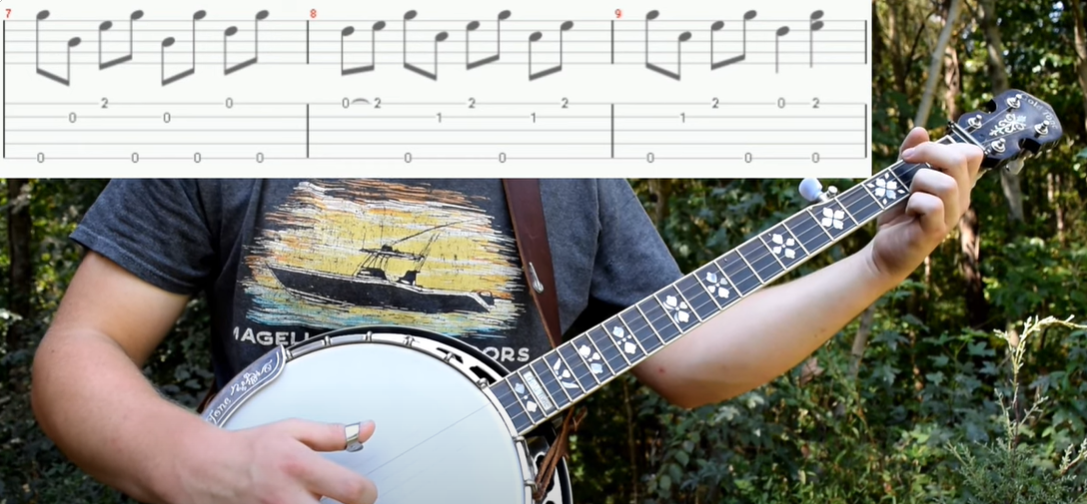
Would You Go With Me? – Josh Turner
“Would You Go With Me?” is a captivating banjo country song by Josh Turner. Released in 2006, this song quickly climbed the Billboard country charts, showcasing Turner’s deep, resonant vocals and the twangy charm of the banjo. The song poses a series of hypothetical scenarios, each one a testament to unconditional love and companionship. From the highest heights to the deepest depths, Turner asks his love if they would stand by him, creating a narrative that is both romantic and deeply human. The banjo’s plucky, upbeat rhythm provides a joyful backdrop to the song’s heartfelt lyrics, creating a memorable and engaging musical experience. This track serves as a beautiful illustration of how banjo country music can communicate powerful emotions and stories, striking a chord with listeners across generations.[2]
Blacktop – Alan Jackson
“Blacktop” by Alan Jackson is not just another stellar example of banjo-infused country music; it is a masterpiece that transports listeners to the heart of rural America. With his neo traditionalist country style, Jackson expertly weaves a powerful narrative of the joys, struggles, heartache, and resilience of rural life.
What sets “Blacktop” apart is not just its captivating banjo rhythms that pulsate throughout the song, but also Jackson’s rich, baritone voice that adds depth and emotion to every word. His delivery is so genuine and heartfelt that it resonates with audiences on a profound level.
This track stands as a testament to the enduring appeal of banjo country songs. It encapsulates the authenticity and emotional resonance that make banjo country music a timeless genre beloved by many. “Blacktop” reminds us of the power of music to tell stories, evoke emotions, and connect us to our roots.
So, next time you listen to “Blacktop,” let yourself be transported to the vast landscapes and tight-knit communities of rural America. Feel the banjo’s harmonies reverberate through your soul and allow Alan Jackson’s voice to transport you to a place where the authenticity of country music reigns supreme.[2]
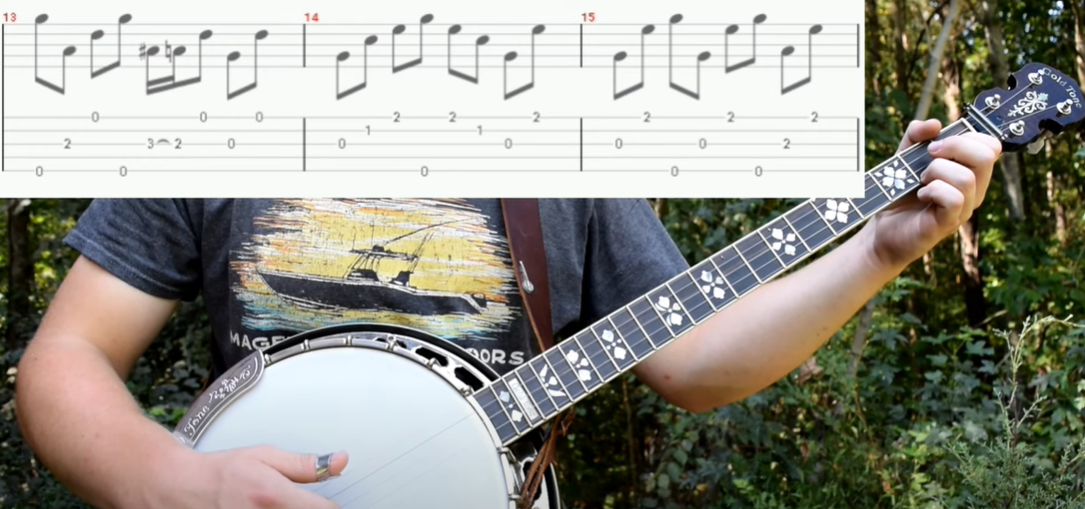
If That Ain’t Country – David Allan Coe
If you’re delving into the realm of banjo country music, one song that you absolutely cannot miss is “If That Ain’t Country” by David Allan Coe. This timeless masterpiece, released in 1982, serves as a profound testament to the authentic, raw spirit of country life in all its glory.
The beauty of this song lies in its vivid storytelling, deeply rooted in Coe’s own personal experiences. As you listen, you’ll embark on a captivating journey through the rough-and-tumble world of rural America. It’s a world that encapsulates the struggles and triumphs of working-class life, as well as the simple pleasures of community and kinship.
Coe’s gritty realism shines through every word, painting a vivid picture of country existence. The lively strumming of the banjo and Coe’s unfiltered vocals combine to create a rich, earthy sound that is quintessentially country. This song not only exemplifies the raw, unvarnished appeal of banjo country music, but it also solidifies David Allan Coe’s place as a true stalwart of the genre.
So, take a moment to immerse yourself in the captivating narrative of “If That Ain’t Country” and let its timeless melodies transport you to the heart and soul of rural America.[2]
Highway 40 Blues – Ricky Skaggs
“Highway 40 Blues” is an extraordinary banjo country track performed by the incredibly talented Ricky Skaggs. This timeless masterpiece, released in 1983, quickly skyrocketed to the number one spot on the Billboard Hot Country Singles chart, captivating the hearts of country music enthusiasts worldwide. Skaggs, renowned for his exceptional skills as a multi-instrumentalist, truly shines in this track, showcasing his virtuosity through his masterful banjo playing.
The song beautifully weaves a tale of a struggling musician traversing the renowned Highway 40, a road teeming with dreams and aspirations, yet fraught with challenges and obstacles. Skaggs’ high tenor voice, coupled with the lively and captivating banjo strumming, breathes life into the lyrics, creating a compelling and upbeat rhythm that resonates with listeners. This delightful juxtaposition wonderfully exemplifies the unique charm and emotional depth of banjo country music, transporting us to a place where heartfelt emotions and relatable stories intertwine.
With “Highway 40 Blues,” Ricky Skaggs showcases the true power of country music to captivate and resonate with audiences. It serves as a testament to the genre’s ability to tell authentic stories, evoke genuine emotions, and leave an indelible mark on our hearts. Through his heartfelt and genuine performance, Skaggs reminds us of the magic and allure that lies within the realm of country music, making it a cherished treasure for generations to come.[2]
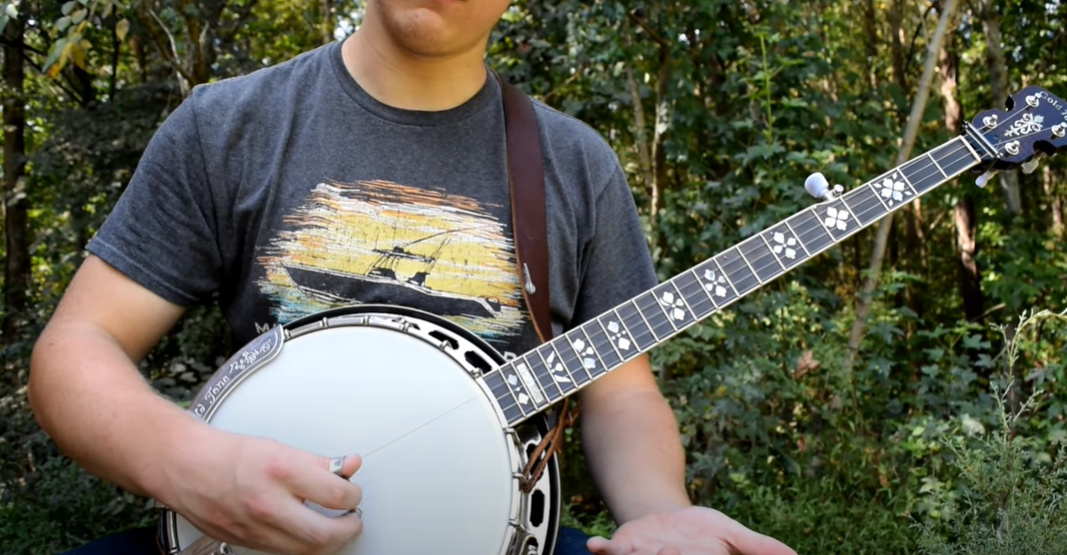
Mama Tried – Merle Haggard
“Mama Tried” is an unforgettable banjo country anthem that has stood the test of time, courtesy of the legendary Merle Haggard. Released in 1968, this timeless song weaves a poignant tale of regret and reflection, drawing inspiration from Haggard’s own tumultuous early life. With a soulful voice laced with heartfelt regret, Haggard masterfully narrates the story of a mother’s unwavering efforts to guide her wayward son onto the right path, even in the face of his determined rebelliousness. The banjo’s distinct twang, echoing with emotional depth, adds an extra layer of nostalgia and sorrow to the composition.
As the melancholic melody unfolds, “Mama Tried” transcends the boundaries of a mere song. It becomes a candid confession, a heartfelt tribute to a mother’s enduring love, and a timeless testament to the unwavering power and resonance of banjo country music. This iconic track not only showcases Haggard’s vocal prowess but also solidifies his place as one of the greatest voices in the rich tapestry of country music history. So, take a moment to immerse yourself in the raw emotion and captivating storytelling of “Mama Tried,” and let the banjo’s twang transport you to a place where love, regret, and the power of music intertwine.[1]
Catfish John – The Country Gentlemen
“Catfish John” is an unforgettable banjo country ballad skillfully performed by the legendary band, The Country Gentlemen. This timeless song, originally released in 1976, delves into the profound themes of nostalgia, simplicity, and the joys of pastoral life through the captivating tale of the titular character, Catfish John. He serves as a symbolic representation of a bygone era, embodying the essence of a hardworking, down-to-earth man living in perfect harmony with nature’s rhythms.
With each heartfelt note and carefully crafted lyric, “Catfish John” becomes an enchanting journey, transporting us to a simpler time and reminding us of the beauty found in life’s simplest pleasures. It is a testament to the enduring power of music, allowing us to connect with the past and embrace the rich tapestry of our shared cultural heritage.[1]
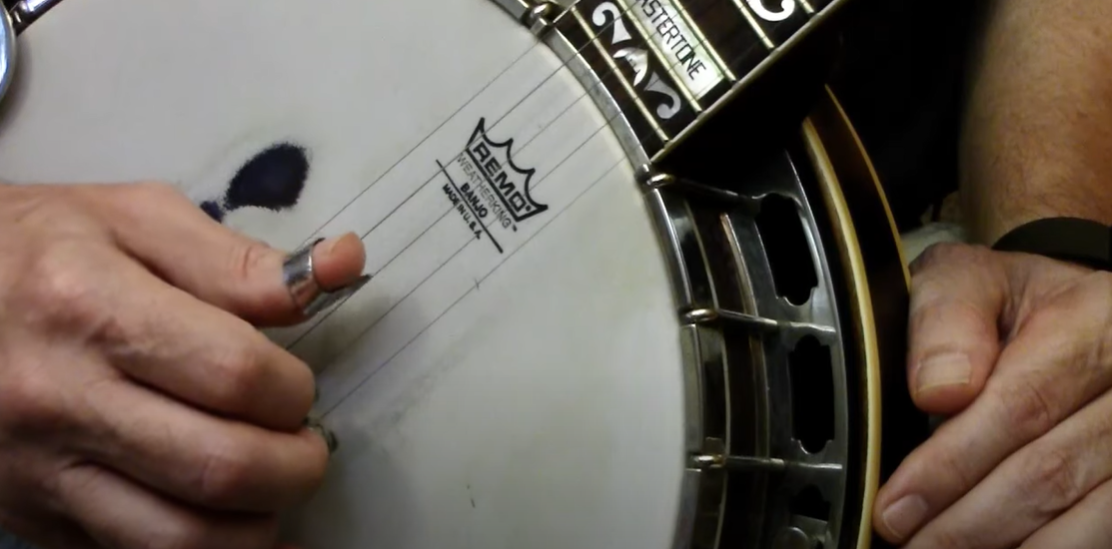
Just to See You Smile – Tim McGraw
“Just to See You Smile” by Tim McGraw is truly a gem in the treasure trove of banjo country music. Released in 1997, this timeless song not only topped the Billboard Hot Country Songs chart but held its position for an impressive 42 weeks, solidifying its status as a country music classic.
The song weaves a heartrending tale of unrequited love, where the protagonist selflessly goes above and beyond to ensure the happiness of the one they love, even if it means accepting that their love may lie elsewhere. With each strum of the banjo and the evocative vocals of Tim McGraw, a powerful atmosphere of poignant love and sacrifice is created, captivating listeners and tugging at their heartstrings.
The banjo’s soft melody acts as an ethereal companion to the heartfelt lyrics, adding an extra layer of sentiment and enhancing the emotional depth of the song. It’s a testament to the banjo’s unique ability to evoke raw, heartfelt emotions, making it an indispensable instrument in the world of country music.
Tim McGraw’s soulful rendition of “Just to See You Smile” not only showcases his extraordinary talent as a musician but also highlights the banjo’s remarkable ability to convey the depth of human emotions. It serves as a reminder of the profound impact that music, and specifically the banjo, can have on our lives, touching our hearts and souls in ways that words alone cannot.
So, next time you listen to “Just to See You Smile,” allow yourself to be swept away by the banjo’s gentle strumming and Tim McGraw’s soul-stirring vocals. Immerse yourself in the rich tapestry of emotions that this song effortlessly evokes, and let it remind you of the power of music to connect us all on a deeper, more profound level.[1]
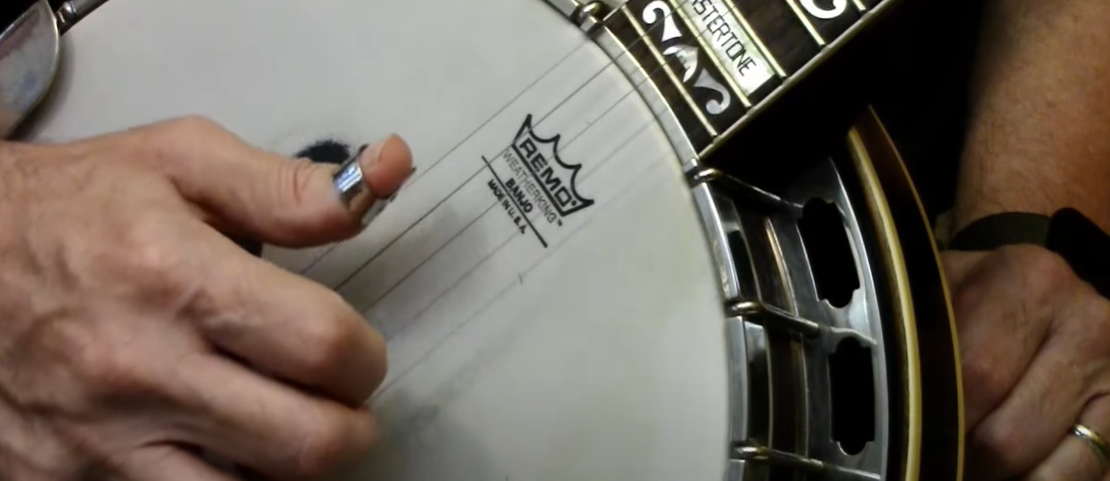
FAQ
What is country music with banjo called?
Country music that primarily features the banjo, a unique and soulful instrument, is often referred to as ‘Banjo Country Music.’ This sub-genre of country music is defined not only by its distinctive sound but also by its instrumental complexity and deep-rooted storytelling. From the lively riffs that make you want to tap your feet to the soothing melodies that touch your heart, banjo country music captivates listeners with its undeniable charm.
The banjo’s twang, with its rhythmic strumming, adds a special layer of depth to the music. It enhances the narrative and emotional resonance of the songs, allowing the listeners to truly connect with the lyrics. Whether it’s a heartfelt ballad about love, a poignant tune about loss, or an anthem celebrating the simple joys and struggles of rural life, banjo country music artfully encapsulates the essence of these experiences.
In the larger landscape of country music, banjo country music holds a cherished place. Its versatility and rich history make it an integral part of the genre’s tapestry. It has stood the test of time, with its timeless melodies and beloved songs continuing to resonate with audiences across generations.
So, next time you find yourself immersed in the sounds of banjo country music, take a moment to appreciate the intricate details and the heartfelt stories it shares. It’s a music genre that transports you to a world where emotions run deep and life’s experiences are beautifully woven into melodies that touch the soul.
What songs use the banjo?
The banjo, with its distinct twang and resonant tone, has solidified its position as a staple instrument in a multitude of memorable songs across various genres. Its presence is particularly prominent in country and bluegrass music, where it adds a vibrant and authentic element to the compositions.
One notable example that showcases the banjo’s prowess is “Dueling Banjos” by Eric Weissberg and Steve Mandell. This iconic song gained widespread recognition after being featured in the film “Deliverance,” becoming synonymous with the banjo itself. Its lively and spirited melody resonates with listeners, leaving an indelible mark on the banjo’s legacy.
Another beloved banjo tune is “Cripple Creek” by Earl Scruggs, a true masterpiece in bluegrass music. Its fast-paced and bouncy rhythm captures the essence of the genre, captivating audiences with its infectious energy. The intricate fingerpicking style employed by Scruggs in this song further showcases the banjo’s technical versatility.
In the realm of country music, “Foggy Mountain Breakdown” by Flatt & Scruggs is hailed as a banjo classic. Renowned for its intricate picking style and infectious melody, this instrumental piece continues to captivate audiences with its timeless charm.
Even outside the strict confines of country and bluegrass, the banjo has made its presence felt. Take, for instance, “Take It Easy” by The Eagles, a song that seamlessly blends elements of rock and country. The banjo, with its distinctive sound, adds a touch of Americana to the composition, contributing significantly to its overall character.
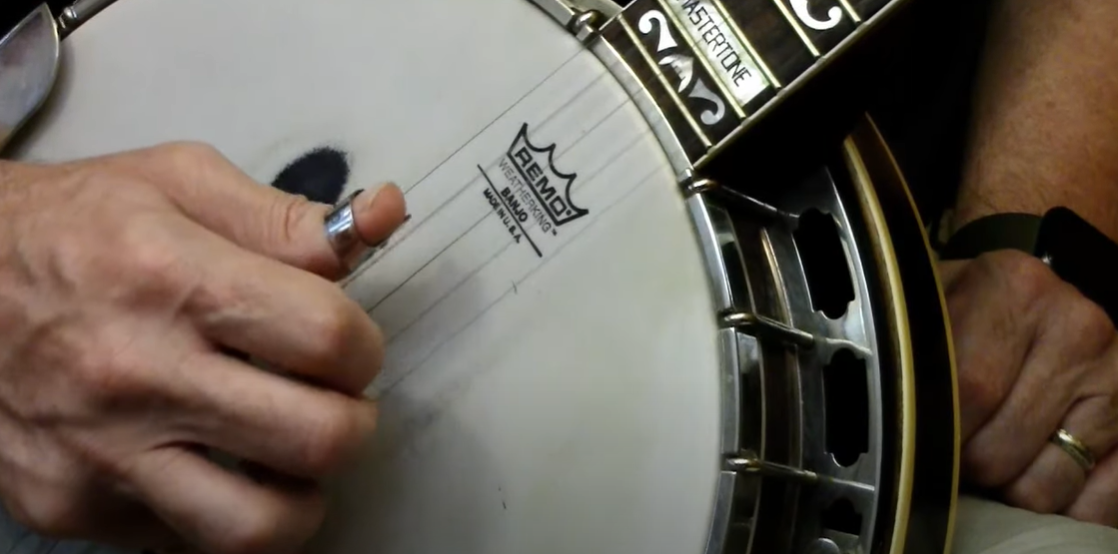
Lastly, we cannot overlook the emotional depth and narrative power that the banjo brings to songs. “Man of Constant Sorrow” by The Soggy Bottom Boys is a prime example of this. The banjo’s haunting and soul-stirring melodies perfectly complement the song’s poignant lyrics, evoking a sense of longing and melancholy.
In conclusion, the banjo’s unique sound and versatility have ensured its rightful place in a myriad of songs, spanning a wide range of genres and emotional landscapes. From upbeat and foot-stomping tunes to heartfelt and introspective ballads, the banjo continues to captivate listeners with its timeless appeal.
What is the most famous banjo tune?
“Dueling Banjos” is widely regarded as the most renowned banjo tune on a global scale. Initially composed by the legendary Arthur “Guitar Boogie” Smith in 1955, this melodic masterpiece gained unprecedented fame when it was prominently featured in the critically acclaimed 1972 film “Deliverance.” The enchanting and mesmerizing banjo-guitar duet, performed with flawless precision, showcases the banjo’s remarkable versatility and its ability to captivate listeners with its dynamic range. With its lightning-fast picking and irresistible toe-tapping rhythm, “Dueling Banjos” has transcended its cinematic roots to become an iconic piece of music that is inherently linked to the banjo itself.
Despite its association with the controversial film, this timeless composition has solidified its status as a classic within the realms of country and bluegrass music, as well as within the broader musical landscape. Its enduring popularity continues to captivate audiences, serving as a testament to the enduring power of this beloved instrument and its ability to evoke a sense of joy and admiration in the hearts of music enthusiasts worldwide.
Did Led Zeppelin use banjo?
Indeed, Led Zeppelin, the iconic rock band, showed their musical versatility by incorporating the banjo into their repertoire. Led Zeppelin’s renowned guitarist, Jimmy Page, known for his experimental approach, pushed the boundaries of instrumentation, exploring new sounds and textures. Among their vast musical contributions, a notable instance of banjo inclusion can be found in the song “Gallows Pole” from their album Led Zeppelin III (1970). Towards the end of the track, Page’s masterful banjo playing adds a frenetic energy and a distinct folk-rock flavor, elevating the song’s overall vibe. While the banjo may not have been a regular feature in their extensive musical catalog, its presence in “Gallows Pole” exemplifies Led Zeppelin’s ability to seamlessly blend diverse musical styles and elements. This creative fusion solidifies their legacy as one of the most innovative and influential rock bands in history.
Did Jimmy Page play banjo?
Yes, Jimmy Page, the legendary Led Zeppelin guitarist, did play the banjo. Known for his innovative and eclectic musical style, Page was always on a quest for new sounds and instruments to incorporate into his music. In addition to his mastery of the guitar, he explored the banjo, among other instruments, throughout his illustrious career.
One notable example of Page’s banjo playing can be found in the track “Gallows Pole” from Led Zeppelin’s album “Led Zeppelin III.” This album marked a distinct shift in the band’s musical direction, as they delved into more acoustic and folk-influenced sounds. Page’s banjo adds a unique and vibrant texture to the song, bringing a fresh dimension to the band’s repertoire.
Page’s ability to seamlessly transition between guitar and banjo demonstrates his musical versatility and his willingness to push boundaries. His banjo playing not only showcases his technical prowess but also reinforces his status as one of the most influential guitarists in rock history.
Through his experimentation with different instruments, Jimmy Page has left an indelible mark on the world of music, inspiring countless musicians to explore and embrace new sounds. His banjo playing is just one example of the boundless creativity and innovation that defines his musical legacy.
Who is the best banjo player?
When it comes to naming the best banjo player, it’s important to acknowledge that personal preferences play a significant role. Each banjo player brings their own unique style, influence, and musicality to the instrument, making it a subjective matter. However, one cannot overlook the immense impact of Earl Scruggs on the banjo and bluegrass music as a whole. Renowned for his innovative three-finger picking style, Scruggs revolutionized the way the banjo was played, introducing a distinctive sound that became synonymous with the genre. His pioneering technique, famously known as “Scruggs Style,” elevated the banjo from a rhythm instrument to a prominent lead instrument, solidifying its position in the world of music.
Scruggs’ unparalleled delivery, speed, and precision continue to inspire and awe musicians of all generations. His profound contributions have left an indelible mark on the banjo’s musical landscape, shaping its legacy for years to come. It is worth mentioning other notable banjo masters such as Béla Fleck, a virtuoso who pushes boundaries with his genre-bending banjo approach, and Steve Martin, an accomplished banjo player in addition to being a beloved actor-comedian.
While the debate for the best banjo player may never reach a consensus, it is undeniable that these extraordinary artists have significantly shaped the banjo’s musical journey, leaving an enduring impact and inspiring countless musicians to explore the instrument’s limitless possibilities.
Useful Video: Take Me Home, Country Roads | Banjo Lesson With Tab
Conclusion
The banjo’s unique sound and versatility have made it an essential instrument in country and bluegrass music, contributing to the genre’s depth of emotion and narrative power. Numerous legendary tunes and artists have showcased the banjo’s dynamic range, demonstrating its ability to convey intricate melodies and rhythms. Artists like Earl Scruggs, Béla Fleck, and Jimmy Page have not only mastered the banjo but have also pushed its boundaries, integrating it into various music styles and genres. Despite its origins in traditional music, the banjo continues to inspire and shape modern music, solidifying its place in our musical heritage. Its enduring appeal and distinctive twang ensure that the banjo will continue to be a beloved instrument in music for generations to come.
References:
- https://www.musicindustryhowto.com/songs-with-banjo/
- https://acousticworld.net/the-15-best-country-songs-with-a-banjo/




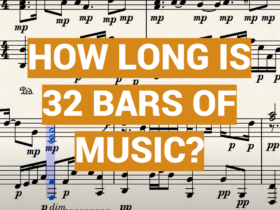
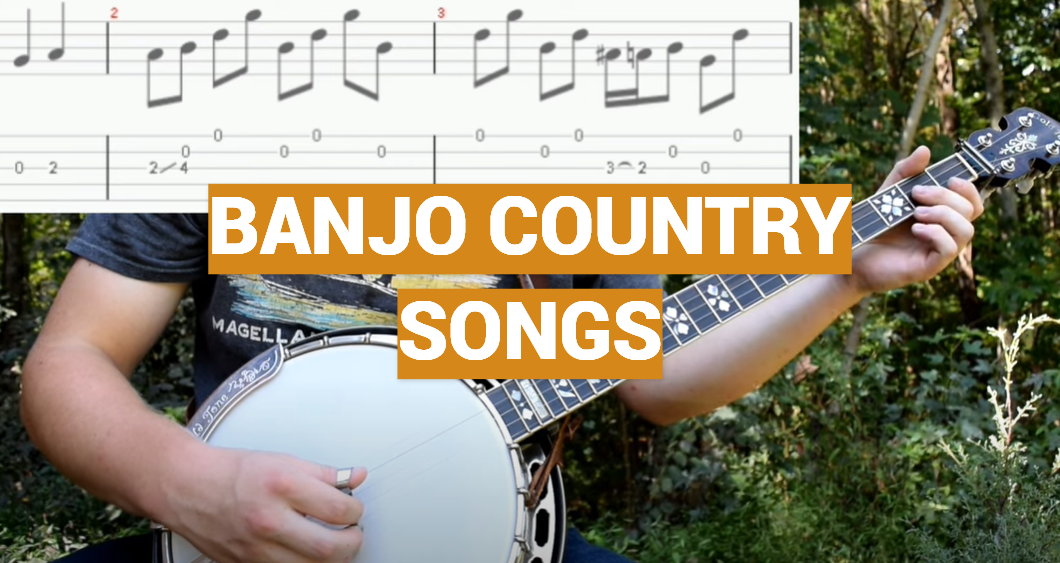
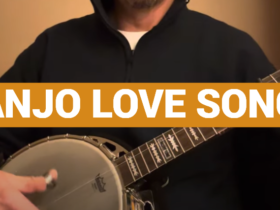

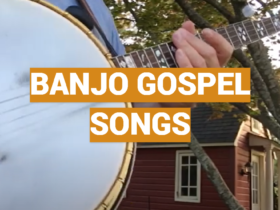
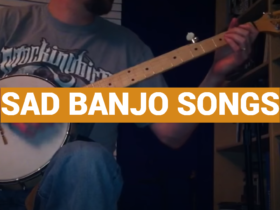
Leave a Reply